7 Creative, Eco-Friendly Ways to Use Shipping Containers 7 Creative, Eco-Friendly Ways to Use Shipping Containers
Did you know shipping containers are extremely versatile? From swimming pools to vertical farms, here are a few of the creative and eco-friendly use cases.
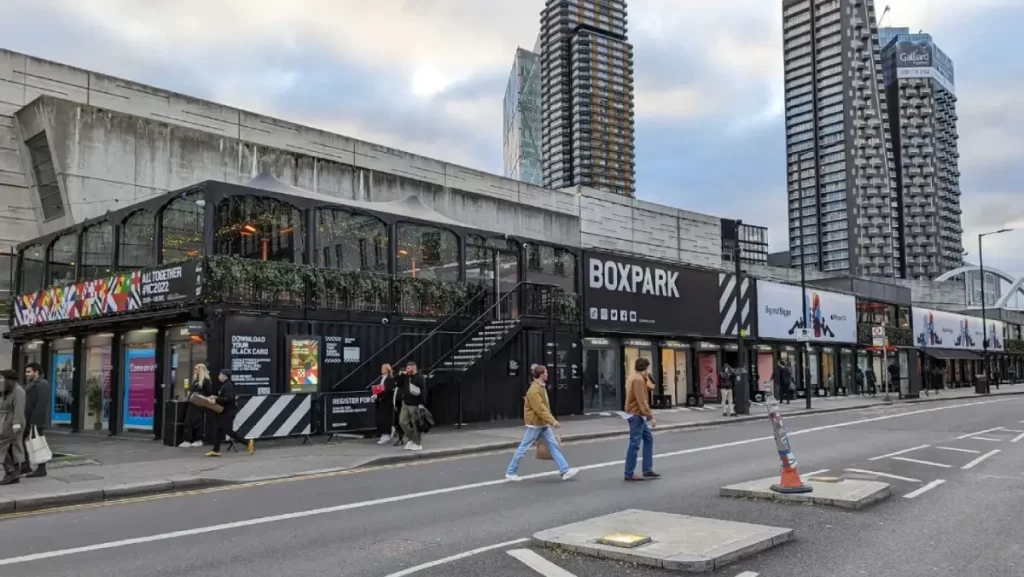
Traditionally created to transport goods around the world, shipping containers are gaining new leases on life in myriad ways. From tiny homes and pop-up shops to vertical farms, ICUs, and even swimming pools, the ways in which shipping containers can be recycled and repurposed are virtually infinite. And because they’re so durable and built according to standard specs, they can easily be stacked, connected, and kitted out with all kinds of transformative features — like plumbing, electricity, heat, and more. Here are just some of the creative and eco-friendly ways shipping containers are being used today.
Unique Housing Solutions
You’ve probably seen or heard of tiny houses — homes made from converted shipping containers — but over the years, containers have come to play a much more varied role in eco-friendly housing construction. Architects have reimagined how shipping containers can be used to create housing solutions, creating entire apartment complexes and sprawling dwelling configurations to house a large number of people. The Netherlands-based Tempohousing is a great example — it built the first container campus for students in the world, as well as a container-made shelter for the homeless in Brighton.
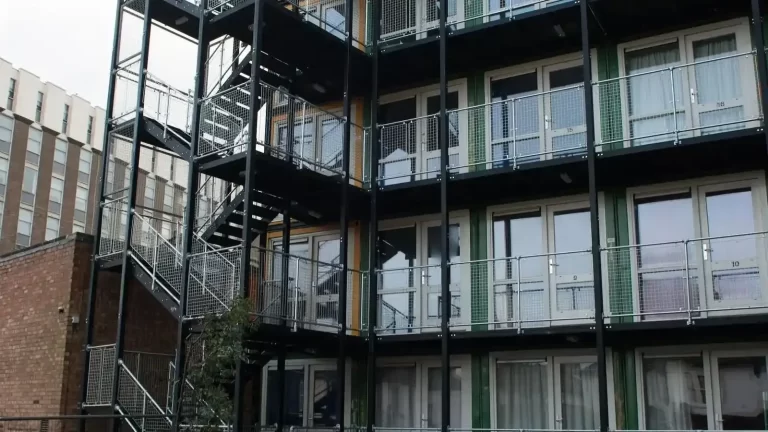
Garden Sheds
Because shipping containers are built of steel that can withstand the elements, they make for excellent eco-friendly garden sheds. Much sturdier than a traditional wooden shed, they’re not susceptible to rot or mold. They also offer plenty of security. Some design firms, like the Grass Roof Company, have thought beyond container sheds as simply vessels to store garden supplies. Instead, they’ve turned containers into lush and tranquil garden rooms and studios, where gardening enthusiasts can display plants, work on arrangements, and more.
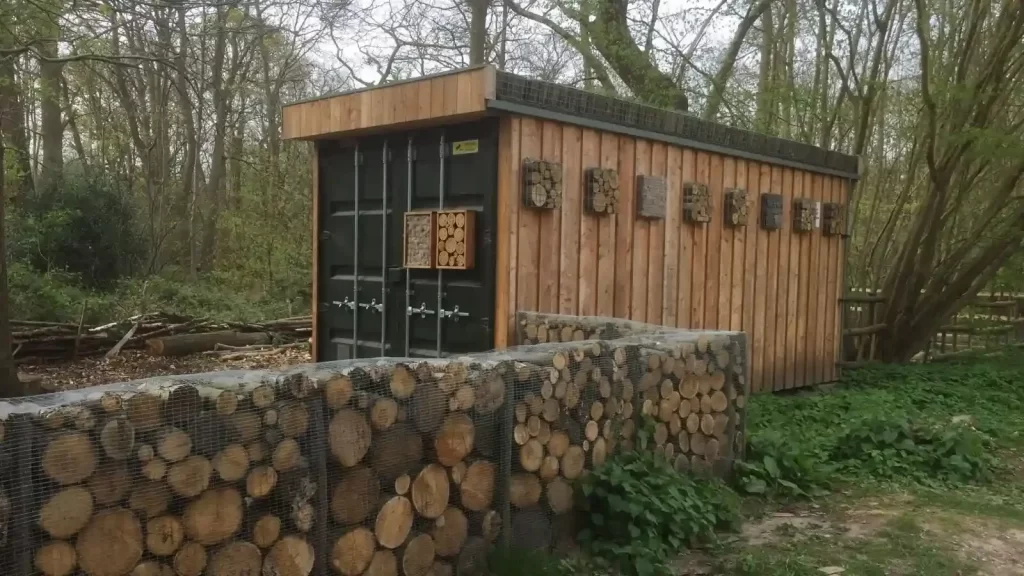
Swimming Pools
Yes, you read that correctly. Shipping containers can and have been successfully converted into swimming pools. Whether it be a private backyard pool or a pop-up public pool for the neighborhood, these solid, reliable units can easily be converted into 20- or 40-foot lagoon-like pools with zero digging, planning permission, or major work. Cubepools is one company that’s making waves in this sector. They convert shipping containers into pools with filters, underwater lights, ladders, heat pumps, and even translucent panels.
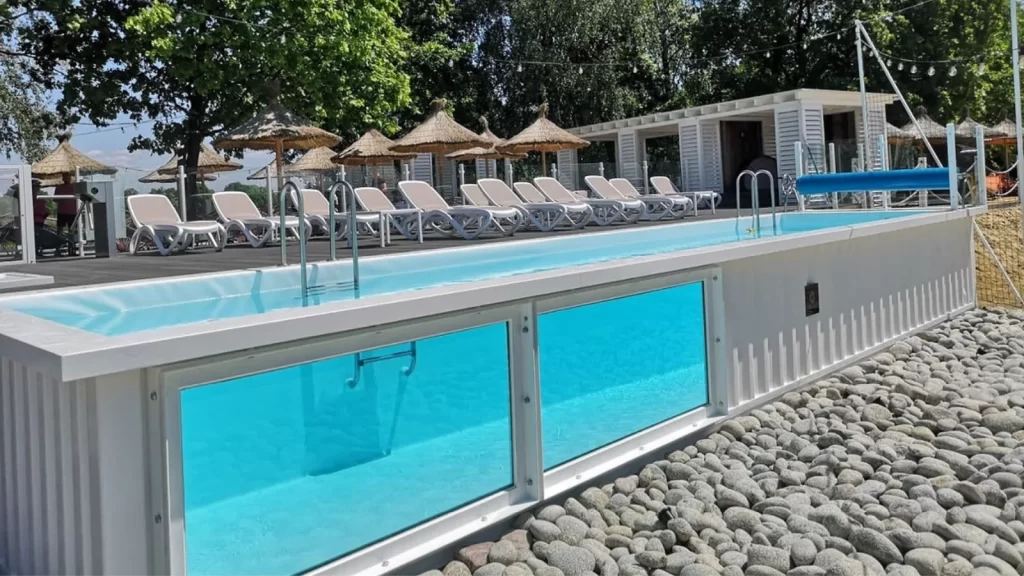
Pop-Up Shops
Containers can quickly and easily be converted into pop-up stores for special events or temporary exhibits. Big-name brands like Superdry, Aether, and Aalto & Aalto have all opened container pop-up shops in the past, where customers can browse and purchase goods. The ease of setting up a container store allows brands to expand their presence and penetrate new markets in a cool way that’s both lower-risk and lower-cost than traditional brick-and-mortar shops. They’re also more environmentally friendly. One especially notable project was Boxpark, an entertainment complex for street food, drinks and entertainment, made from shipping containers that now boasts locations in Shoreditch, Croydon, and Wembley, London.

Pop-Up Restaurants & Cafes
Containers make for great eco-friendly restaurants and cafes for many of the same reasons as container stores. It’s a trend that can be observed around the world. The Mexican restaurant Wahaca commissioned Softroom Architects to design a two-story venue complete with an outdoor terrace using eight shipping containers in London’s trendy Southbank neighborhood. In Savannah, Georgia, Lominack Kolman Smith Architects used over 30 shipping containers to create Starland Yard, an outdoor food court with a bar and pizzeria, plus a changing selection of international food trucks. The list goes on and on.
ICUs and Care Units
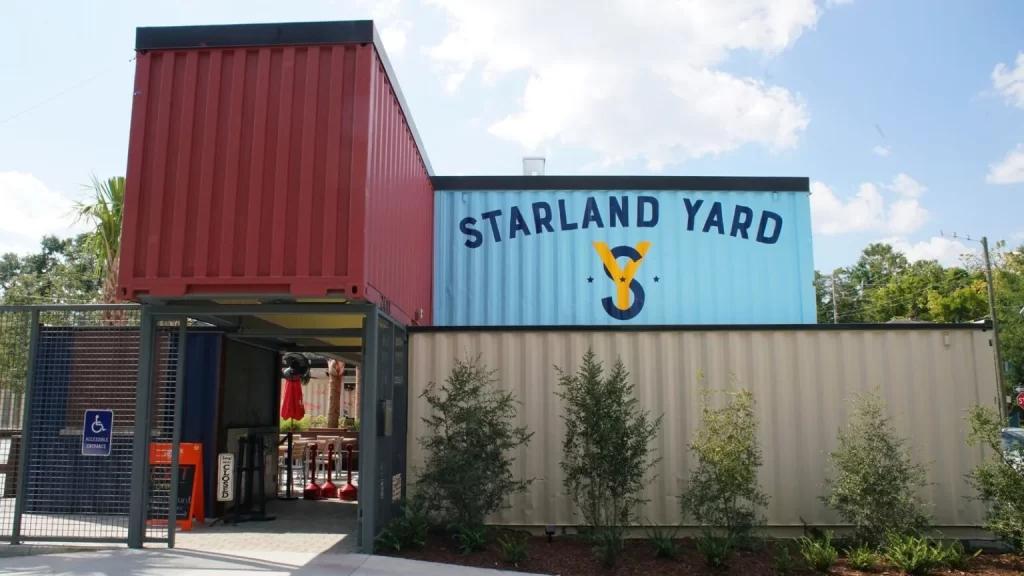
During the pandemic, healthcare organizations and governments transformed shipping containers into ICUs and critical-care units to support overburdened hospital systems — and the trend has continued. Designed by teams of engineers, designers, and medical professionals, they can be built quickly and offer all the safety and necessary equipment of a traditional isolation ward. And thanks to their modular design, they can be placed in parking lots or open spaces, helping to bring care to communities without easy access to a traditional care facility. For example, this modified shipping container has been installed at a temporary hospital built within the Officine Grandi Riparazioni complex in central Turin. Designed by Carlo Ratti Associati and named Connected Units for Respiratory Ailments (CURA).
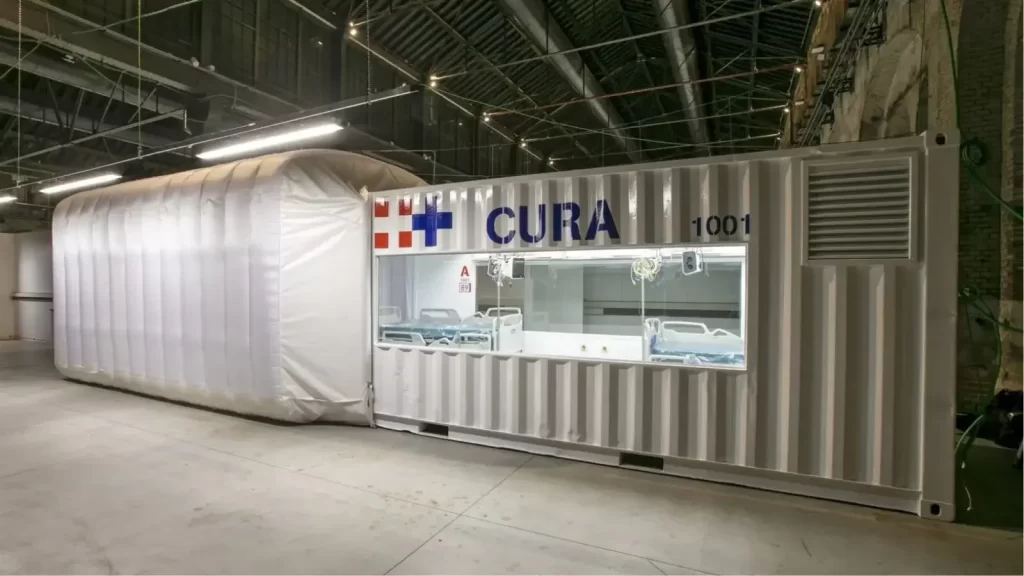
Vertical Farms and Gardens
Another great eco-friendly use case for recycled shipping containers is the vertical farm. As it turns out, shipping containers double as ideal vessels for indoor farms and greenhouses. They’re stackable, which reduces the amount of land needed to yield a large crop (unlike traditional farms). They can also be transformed to maintain the right conditions for growing different kinds of crops, including temperature and humidity levels. Companies like Freight Farms are using shipping container farms to solve for food deserts by putting growing power into the hands of ordinary people.
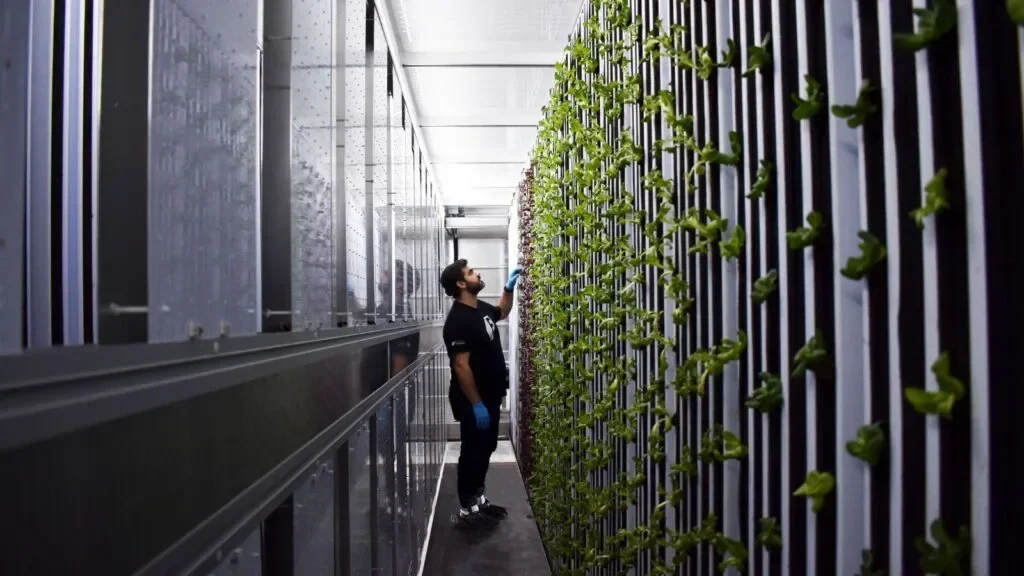
It’s truly incredible how a metal box can be transformed into nearly anything under the sun. Whether you dream of running your own pop-up café or retail shop, adding a swimming pool to your backyard quickly and efficiently, or growing and harvesting crops in every season, shipping containers can be adapted into a limitless number of eco-friendly use cases. The first step, though, is to find the right container to suit your needs.
Calebwedman is the leading platform for selling shipping news and used containers. We’ll help you find exactly what you’re looking for close to your location. Get started today.
